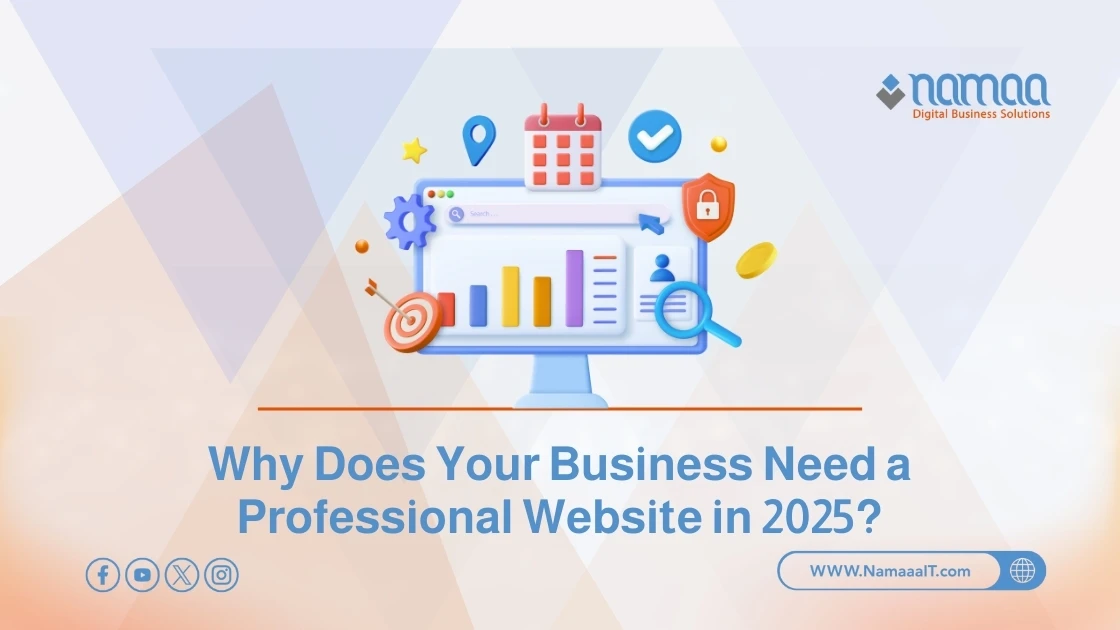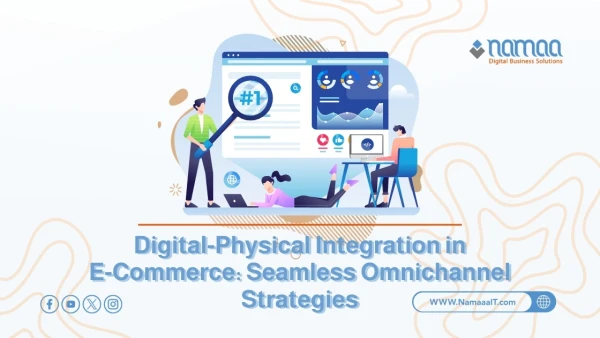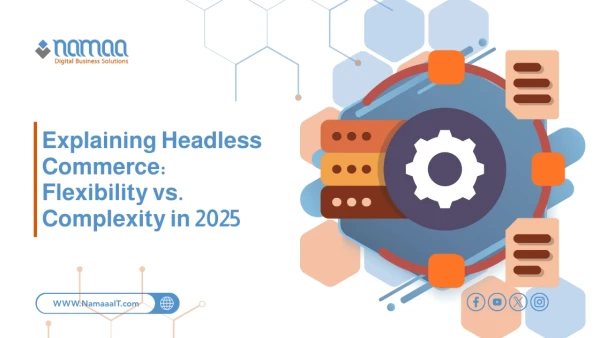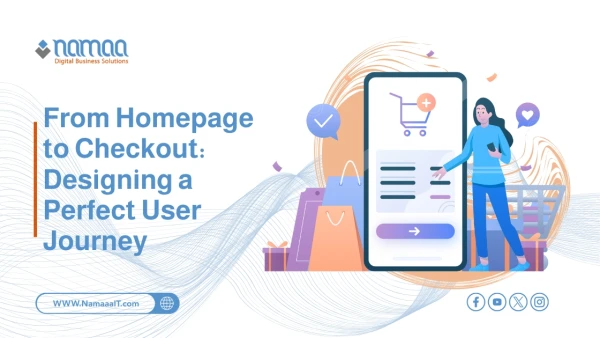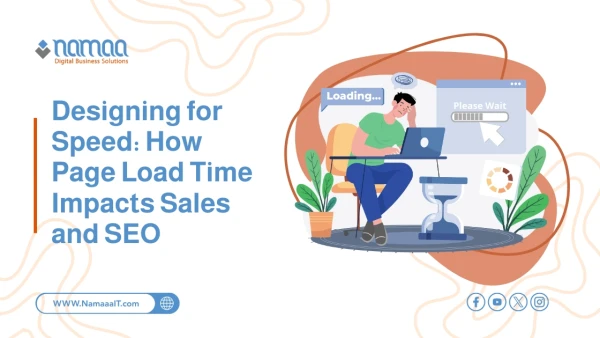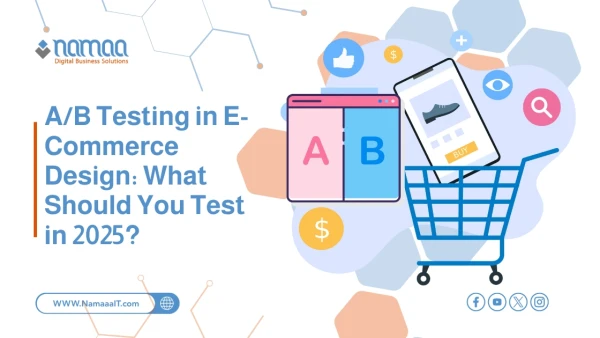In 2025, having a professional website is no longer a luxury option for businesses, but a strategic necessity for survival and expansion in a competitive, fast-digitizing market. A professional website is not just a digital front; it is a powerful tool for building customer trust, reinforcing brand identity, and increasing sales.
Studies show that companies with websites generate up to 70% more profit than those relying solely on traditional marketing and sales methods. A website allows products and services to be showcased professionally, makes it easier to reach customers anytime and from anywhere, and increases opportunities for growth and expansion.
Furthermore, a website enhances the customer experience by providing accurate and easily accessible information and offering direct technical support services, which increases customer satisfaction and loyalty.
Given these facts, it's clear that investing in a professional website is a critical step for any company aspiring for success and sustainability in the digital era.
What is a Professional Website?
A professional website is more than just a webpage on the internet—it's a fully integrated digital platform that represents your company’s identity and reflects the quality of your services or products. It features thoughtful design, smooth user experience, and clear content that accurately communicates your business objectives. The goal isn’t just to appear online, but to engage the visitor and convert them into an actual customer.
- Key features of a professional website include:
- High browsing speed
- Compatibility with all devices (desktop, mobile, tablet)
- Easy-to-use interface
- Clear content structure
- A visual style consistent with the brand
Additionally, it must include modern security features, SEO-optimized pages, and interactive tools like contact forms, live chat, or email subscription options.
The core difference between a regular website and a professional one lies in purpose and results. While a basic site might simply display some information, a professional site aims to build a continuous relationship with visitors and encourage action—whether it's making a purchase, signing up, or contacting you. It also serves as a powerful analytics tool, offering accurate data to help you understand your audience and improve your marketing decisions.
In 2025, a professional website has become a must-have for any company looking to grow and make an impact in a fast-paced digital market. It is the foundation of your online presence and your first point of contact with potential clients.
Why Does Your Business Need a Professional Website in 2025?
1. Accelerated Digital Transformation
The world is experiencing rapid digital transformation, with most business interactions moving online. Today’s customers expect to find everything easily on the internet—from information to purchases. In this context, it’s illogical for your business not to have a professional website that reflects your presence in this evolving space.
2. Your Website is Your Digital Identity
Your website is a direct reflection of your company's identity. It tells customers who you are, what you offer, and why they should trust you. Design, colors, language, and images all shape the first impression. A professional site conveys seriousness, structure, and credibility—setting you apart in a crowded market.
3. Building Trust and Credibility
A professionally designed website increases customer trust in your company. Businesses without a website—or with outdated, basic pages—raise doubts about their seriousness and longevity. A good website provides transparent information, showcases success stories and testimonials, and demonstrates an official, trustworthy presence.
4. Reach a Wider Audience
A website removes geographic limitations. You can reach customers in other cities—or even other countries—without the costs of physical expansion. Whether offering services or products, a professional website opens doors to markets unreachable through traditional means alone.
5. Supporting Your Digital Marketing Strategy
Your website is the cornerstone of any digital marketing strategy. Whether you're running social media campaigns, email marketing, or paid ads, your website is the destination for all traffic. Without a professional site, you’ll struggle to convert visitors into paying customers in a structured, effective way.
6. 24/7 Availability
Unlike your workforce, which has fixed hours, your website works around the clock. Customers can access your info, submit requests, or contact you anytime—even while you sleep. This 24/7 presence increases sales opportunities and ensures continuous business.
7. Enhanced User Experience
A professional website isn’t just about looks—it’s about the user journey. Easy navigation, clear information, and fast loading all influence how a visitor feels and how likely they are to engage. A well-designed site keeps visitors longer and improves chances of conversion.
8. Data and Analytics Source
Using tools like Google Analytics, you can track visitor behavior—what they’re looking for, where they spend time, and which pages they skip. This data helps improve your website, content, and marketing strategies based on facts—not guesswork.
9. E-commerce and Sales Enablement
If you sell products, your website can act as a full-fledged e-commerce platform. Display products, manage inventory, accept payments, and process orders easily. Online selling lowers costs, broadens your customer base, and boosts repeat purchases.
10. Better Customer Service and Communication
Your website provides multiple customer service options—live chat, contact forms, FAQs, and more. These tools reduce pressure on your support team and improve service quality. Customers feel heard and valued, boosting loyalty.
11. Competitive Advantage
In many markets, businesses still lack an effective online presence. Having a professional website puts you ahead. It also lets you showcase your strengths in unique ways that competitors can’t easily replicate.
12. Strengthening Your Brand
Your website allows you to promote your company's values, vision, and mission—the core of your brand. With consistent design, a unique communication style, and standout content, you build long-term connections with your audience and remain top-of-mind.
13. Security and Reliability
A professional site ensures data protection and encryption of sensitive information. Customers need to trust that their personal data is safe. Features like SSL certificates, reliable hosting, and regular updates signal a secure and trustworthy website.
14. Long-Term Investment
Although building a professional website requires initial investment, it is a long-term asset. It works for you continuously, without salary or vacation. Over time, the upfront cost is outweighed by consistent returns and steady growth in awareness and sales.
The Website as a Comprehensive Marketing Tool
The website is no longer just a platform to showcase company information; it has become a comprehensive marketing tool that enables you to attract potential clients and convert them into actual buyers. Through the website, you can launch targeted digital ad campaigns, apply search engine optimization (SEO) techniques to increase visibility, and create smart marketing content that enhances customer loyalty and encourages engagement. A built-in blog allows you to publish helpful articles, reinforcing your company’s image as a trusted source of information and increasing the time visitors spend on your site. Additionally, collecting visitor data and analyzing their behavior using tools like Google Analytics gives you an accurate understanding of your target audience, improving your advertising strategy over time.
A professional website also allows seamless integration with other marketing tools like email marketing and paid ad platforms. It enables you to track campaign results accurately from the first click to the final purchase. By designing dedicated landing pages, you can attract your target audience and guide them toward clear goals such as purchasing a product or signing up for a service. In short, your website is a platform you fully own, unlike other platforms that are constantly changing their algorithms and policies. This ownership gives you complete flexibility in executing your marketing strategies without relying on third parties, making your website a central hub for all modern marketing activities.
Does Having a Website Eliminate the Need for Social Media Presence?
Despite the importance of having a website in digital marketing, it doesn’t eliminate the need for a presence on social media. Each serves a different purpose and complements the other. The website is your official space that you fully control, and it’s the primary source of accurate and trustworthy information about your business. Social media platforms, on the other hand, are channels for real-time interaction with the audience, quick updates, and building relationships in a more informal way. Relying entirely on one over the other could reduce the effectiveness of your digital strategy.
Being present on platforms like Facebook, Instagram, LinkedIn, or Twitter gives you the chance to reach diverse audience segments and interact with them in creative ways. You can use these platforms to promote your website’s content, drive traffic to it, and increase brand awareness. However, the ultimate goal is to redirect followers to your website, where they can make real decisions: purchases, bookings, registrations, or consultations. Your website is the secure space where you build your actual database, free from the fluctuations of social media algorithms and policies.
read more: How to Choose a Reliable Website Design Company in Saudi Arabia?
Why You Shouldn’t Neglect Regular Website Updates
Neglecting your website updates can quickly diminish its marketing and technical value. In 2025, users expect to see an up-to-date website that reflects your company’s latest products or services. If a visitor lands on your site and finds outdated information or broken links, they may lose trust in your credibility and look for a more modern alternative. Updates don’t only apply to content but also to technical aspects like security, performance, and loading speed.
One key element of updates is improving the user experience. Technology changes, and so do user expectations. What was considered great design two years ago might now seem outdated. Improving the website interface, updating visuals, and refreshing product displays are small details that directly affect visitor retention and conversion. In terms of security, regular updates protect your website from vulnerabilities, especially if you use a content management system like WordPress.
Updates also improve your website’s search engine ranking. Google favors active websites that are regularly updated and ranks them higher, increasing your chances of reaching new audiences. Moreover, consistent updates show that you're engaged and constantly following up on your business, which leaves a positive impression on potential clients.
The Importance of Cybersecurity for Your Company Website
Cybersecurity has become an essential element that cannot be ignored when discussing websites. Your company’s site is not just a digital front but also a repository of sensitive information—about your customers and your business operations. Even a minor security flaw can result in data leaks or breaches that shake customer trust and expose you to legal issues and major financial losses. Therefore, securing your website is not a technical luxury but a strategic necessity to protect your company’s reputation and sustainability.
Basic security measures include using encryption protocols like SSL, which encrypt data during transmission between the user and the server, protecting it from theft. Using strong passwords, regularly updating platforms and plugins, and monitoring suspicious activities are among the simplest measures to reduce the risk of breaches. Regular backups are also crucial so you can quickly restore your website in the event of an attack.
Today’s customers are more aware of security, and they often avoid sites that don’t display the secure lock symbol or show browser security warnings. Investing in cybersecurity reflects your company’s professionalism and builds customer trust. In fact, security can be a real competitive advantage in a market where cyberattacks are on the rise. A professional website must be secure—just as it should be attractive and easy to use.
Cost of a Professional Website vs. Its Return
Some believe that building a professional website is a financial burden, but in reality, this kind of investment often yields returns far greater than its initial cost. The upfront cost you spend on a quality website—covering UI design, technical development, visitor experience optimization, and mobile compatibility—is directly offset by benefits such as increased sales, enhanced brand image, and a broader customer base. Your website doesn’t sleep, doesn’t take holidays, and works for you around the clock.
Website costs vary depending on the requirements but generally range from a few hundred to several thousand dollars, based on customization and the technologies used. While this may seem like a large number for some startups, the returns can be fast and tangible when the site is used effectively as a sales and marketing tool. A well-designed website can reduce your dependence on paid ads, attract customers via organic search (SEO), and improve conversion rates through a smooth experience.
Moreover, a good website reduces customer service costs and saves time by answering frequently asked questions or automating bookings and sales. All these factors prove that the cost of building a website is not an expense, but a long-term investment that yields a stronger reputation, higher sales, and a wider client base. In the 2025 market, companies that delay this investment risk falling behind—or exiting the competition entirely.
Summary:
✅ 87% of consumers begin their purchase journey through online search, making a professional website a crucial tool for attracting them.
✅ Companies with a professional website achieve up to 70% higher revenue growth compared to those relying on traditional channels only.
✅ 75% of users judge a company's credibility based on website design within the first 10 seconds of browsing.
✅ Mobile-friendly websites have 64% higher conversion rates than non-responsive sites.
✅ Regularly updated websites receive 126% more traffic than those with stagnant content.
✅ A single security breach can cost a small business between $10,000 and $100,000, highlighting the critical importance of cybersecurity.
✅ The cost of building a professional website starts at $1,000, while the potential monthly return can be double through increased sales and engagement.

